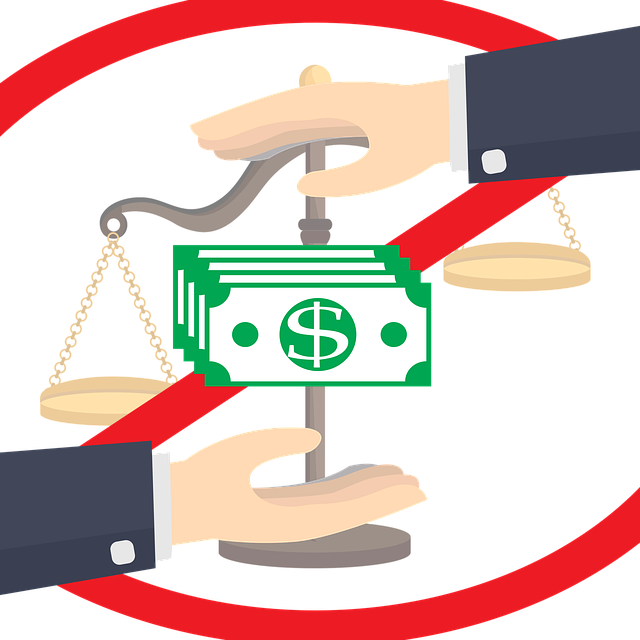How Corruption Risk Management Can Help Your OrganizationHow Corruption Risk Management Can Help Your Organization
Corruption is an ever-present risk in today’s society and can have serious negative effects on organizations, especially those that engage in international dealings. Fortunately, there are measures that can be taken to detect and reduce corrupt behaviors. One such measure is Corruption Risk Management (CRM). CRM outlines a set of preventative measures and controls that aim to detect and reduce the negative effects that corruption can have on an organization. Let’s take a closer look at what CRM is, why it’s important, and how it can help your organization.

What Is Corruption Risk Management?
Corruption Risk Management (CRM) is an important pillar in any organization to minimize their risk of ethical violations. It provides organizations with an understanding of the potential corruption risks that may arise and how to best mitigate them, helping ensure that no questionable activities take place during major business initiatives or operations. It also helps ensure compliance with national laws, as well as other internal regulations or policies. Not only does CRM promote ethical practices in international dealings, but engaging in it also instills confidence in customers and parties outside the organization.
The Benefits Of Implementing Corruption Risk Management (CRM)
The primary benefit of implementing CRM is the assurance it gives stakeholders that their investments are safe from unethical activities or practices. Organizations who practice effective CRM will have more efficient processes while reducing the likelihood of getting involved in unethical activities or transactions. Additionally, engaging in proactive corruption prevention through CRM can help organizations make better decisions when dealing with complex situations by ensuring transparency across all departments within the organization. This transparency can further increase trust among stakeholders and create a healthier working environment for employees as they feel more secure knowing their work practices are being monitored closely by their superiors.
How To Implement Effective CRM Practices
Implementing effective CRM practices begins with conducting a thorough risk assessment of the organization’s current procedures and systems. This assessment should evaluate areas such as procurement processes, payroll management systems, financial reporting protocols, etc., which could be areas at risk for corrupt behavior. Once these areas have been identified, organizations should develop a plan to monitor these areas closely for any signs of unethical activity or suspicious behavior from employees or external parties such as vendors or suppliers. Additionally, organizations should create anti-corruption policies and procedures which include guidelines for reporting any suspected cases of corruption so they may be addressed quickly and appropriately before any damage occurs to the reputation of the organization or its stakeholders.
How do I assess corruption risks?
Corruption Risk Management (CRM) is a critical part of evaluating the activities and operations of any organization. Assessing corruption risks involves understanding what needs to be monitored, the ways in which individuals may act against organizational interests, and the regular gathering and analysis of relevant data. To conduct effective CRM, organizations must develop and maintain clear policies around disclosure of information as well as regular monitoring of all channels where such activity may transpire- including email, phone conversations, letters, documents, and other forms of communication. Keeping track of reported incidents is also important for assessing Corruption risks across an organization’s networks. By leveraging proper Corruption Risk Management practices, organizations can proactively take measures against the potential for Corruption issues to arise.
What are some common corruption risks?
Corruption is an unfortunately common problem in many countries and every organization, big and small around the world. Common risks associated with corruption include bribery, embezzlement, fraud, kickbacks and money laundering. These risks can affect governments, businesses, and even individuals. Bribery and kickbacks involve parties trading money or favors to influence decision-making; embezzlement involves using someone else’s assets or resources for personal gain; fraud is a deceptive act which misleads another person; and money laundering is the process of concealing the origin of illegally obtained funds by disguising them as legitimate income or investments. Taking steps to identify and mitigate corruption risks can help to protect organizations from becoming involved in such activities.
What are some best practices for Corruption Risk Management?
Corruption risk management is an important part of doing business in countries where bribery and other unethical activities are prevalent. By implementing the appropriate policies and procedures, organizations can ensure their operations adhere to anti-corruption legislation. There are several best practices for addressing corruption risks. Companies should conduct training sessions with staff and ensure their personnel understand their ethical obligations under applicable law. It is also important to develop clear codes of conduct that include not only accepted workplace behavior but also applicable rules regarding gifts and entertainment as well as gifts or favors given in exchange for favorable treatment. Additionally, organizations should invest in internal controls such as pre-approval protocols which helps a company monitor any expenses incurred by its employees. Finally, organizations must demonstrate a commitment to transparency in both reporting and operations if they want to prevent the potential for unethical behavior. By taking these steps, businesses can substantially reduce their corruption risk exposure.
Conclusion
Corruption Risk Management (CRM) is an essential part of any organizational strategy designed to protect against unethical behavior or practices both internally and externally. By conducting thorough risk assessments and implementing anti-corruption policies & procedures across all departments within the organization, businesses can ensure compliance with relevant laws while providing stakeholders with increased trust & confidence in their investments due to enhanced transparency & monitoring capabilities provided by effective CRM practices. Ultimately, this will result in improved performance & greater success for all involved parties within the organization’s ecosystem!